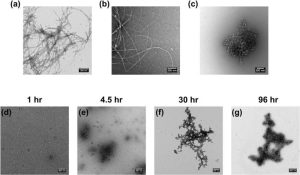Raouf Hajji, MD, PhD.
The rapid emergence of new technologies like Artificial intelligence (AI), remote healthcare and telemedicine, wearable devices and sensors, blockchain, 5G, Internet of Medical Things (IoMT), and quantum computing is changing the healthcare landscape. These innovations have already made substantial impacts on healthcare systems, biomedical research, and academia, with their transformative influence expected to persist for decades.
Artificial Intelligence (AI): AI is a game-changer in healthcare, improving medical diagnosis, treatment, and healthcare delivery. It analyzes vast health datasets, offering precise and timely insights. AI also aids in drug discovery and therapy design by simulating molecular interactions. It enhances healthcare quality, efficiency, and accessibility while introducing challenges such as data privacy, security, bias, and ethical concerns in human-machine interaction.
Remote Healthcare and Telemedicine: These technologies facilitate online patient-doctor interactions, reduce costs, save time, and broaden access to quality healthcare. They also benefit from clinical trials, emergency response, and medical education. However, challenges include technical, regulatory, and cultural issues, such as infrastructure and reimbursement concerns.
Wearable Devices and Sensors: Wearables collect and transmit real-time health data, promoting health awareness, prevention, and early intervention. They measure vital signs like heart rate, blood pressure, and glucose levels and integrate with technologies like AI and blockchain for comprehensive health solutions. While empowering patients to manage their health, they raise concerns about data privacy, security, accuracy, and usability, touching upon issues like data ownership, consent, data protection, quality, validation, and user experience.
Blockchain: Blockchain technology enhances healthcare services by enabling decentralized data sharing, ensuring privacy, empowering users, and guaranteeing data reliability. It supports secure transactions and data exchange in telemedicine and fosters transparency and accountability in academia. Blockchain enhances healthcare security, efficiency, and trust, but its adoption faces challenges such as scalability, interoperability, regulatory compliance, standards, and incentives.
5G Technology: 5G offers faster speeds, lower latency, and increased data transmission capacity, which benefits various healthcare applications, including remote consultation, big-data analytics, virtual and augmented reality (VR/AR), medical robotics, and connected ambulances. It also aids in collecting and analyzing vast health data from electronic health records, wearables, sensors, and mobile apps. 5G supports high-definition video calls, real-time data sharing, remote diagnosis, and treatment, improving healthcare performance, quality, accessibility, and innovation. However, it introduces risks related to security, privacy, safety, and ethical concerns, including data protection, cyberattacks, radiation exposure, and societal implications.
Internet of Medical Things (IoMT): IoMT constitutes a network of connected medical devices, software applications, and health systems that share health data over the internet. It enhances healthcare quality, efficiency, and accessibility by enabling remote monitoring, personalized medicine, data security, healthcare delivery, and supply chain management. IoMT empowers patients and healthcare providers to manage health conditions, offer tailored guidance, optimize health outcomes, and allocate resources efficiently. Challenges include technical, regulatory, organizational, and cultural issues such as infrastructure development, interoperability, standards, policies, reimbursement, trust, and acceptance.
Quantum Computing: Quantum computing leverages quantum physics principles to perform calculations that are impossible or challenging for classical computers. It aids in drug discovery, device development, diagnostics, and therapies by simulating molecular interactions. Quantum computing supports medical research and education through quantum machine learning and AI, enhancing healthcare solutions’ quality, efficiency, innovation, and cost-effectiveness. Nevertheless, it faces hurdles like technical, ethical, social, and legal issues, including scalability, reliability, security, bias, accountability, and regulation.
These emerging technologies are improving the whole healthcare system. However, their widespread adoption faces significant hurdles encompassing technical, social, ethical, and legal aspects. A better understanding of their potential and future implications with global action and collaboration of local, national, and international healthcare stakeholders can alleviate these concerns.
About The Author:
Dr. Raouf Hajji, MD, PhD, is a distinguished Professor Assistant in Internal Medicine with a strong academic and clinical background. He is affiliated with Sidi Bouzid Hospital and the Medicine Faculty of Sousse, Tunisia, where he contributes significantly to medical education and practice. Dr. Hajji also holds the role of Co-Founder and Medical Lead at the International Medical Community (IMC).









